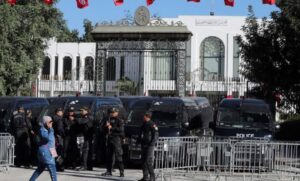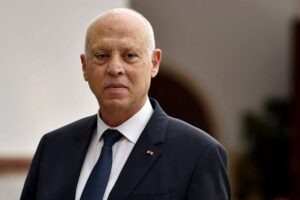Tunisia’s new parliament met on Monday, marking the first time the country has had a functioning legislature since the president shut down the previous parliament by the military in 2021.
The main opposition coalition announced it would not recognize the new parliament, whose members were elected in December and January in elections boycotted by opponents of the president and ignored by the masses. Only 11% of voters voted.
During Monday’s opening session, lawmakers will elect a new parliament speaker to succeed Ennahda’s Islamist leader Rached Ghannouchi, whose party had the largest number of seats in the outgoing parliament.
Unusually, only journalists from state broadcasters and the official news agency were allowed into Parliament for the opening session, and dozens of journalists protested outside.
Also, read; Super Eagles ex-star, Enyeama named greatest African goalkeeper of all time
The hearing comes amid a mounting crackdown on dissident Islamists, independent media and other dissident voices and migrants from sub-Saharan Africa.
President Kais Saied suspended the previous parliament in July 2021 in what he described as an attempt to save the country. Saied and many Tunisians at the time blamed Islamic legislators for the country’s economic and social crisis.
Saied then proceeded by decree and accumulated more and more power. This has raised international concerns as Tunisia was the birthplace of the Arab Spring uprisings a decade ago and the only country to emerge with a new democratic system.
The new legislature has less power than its predecessor, according to a new constitution approved by Saied in a referendum.
It is said to have 161 MEPs, up from 217 in the previous Parliament. But only 154 candidates were elected in the two rounds of parliamentary elections because no candidate bothered to stand in seven constituencies representing Tunisians abroad, reflecting widespread disenchantment with the political class.
